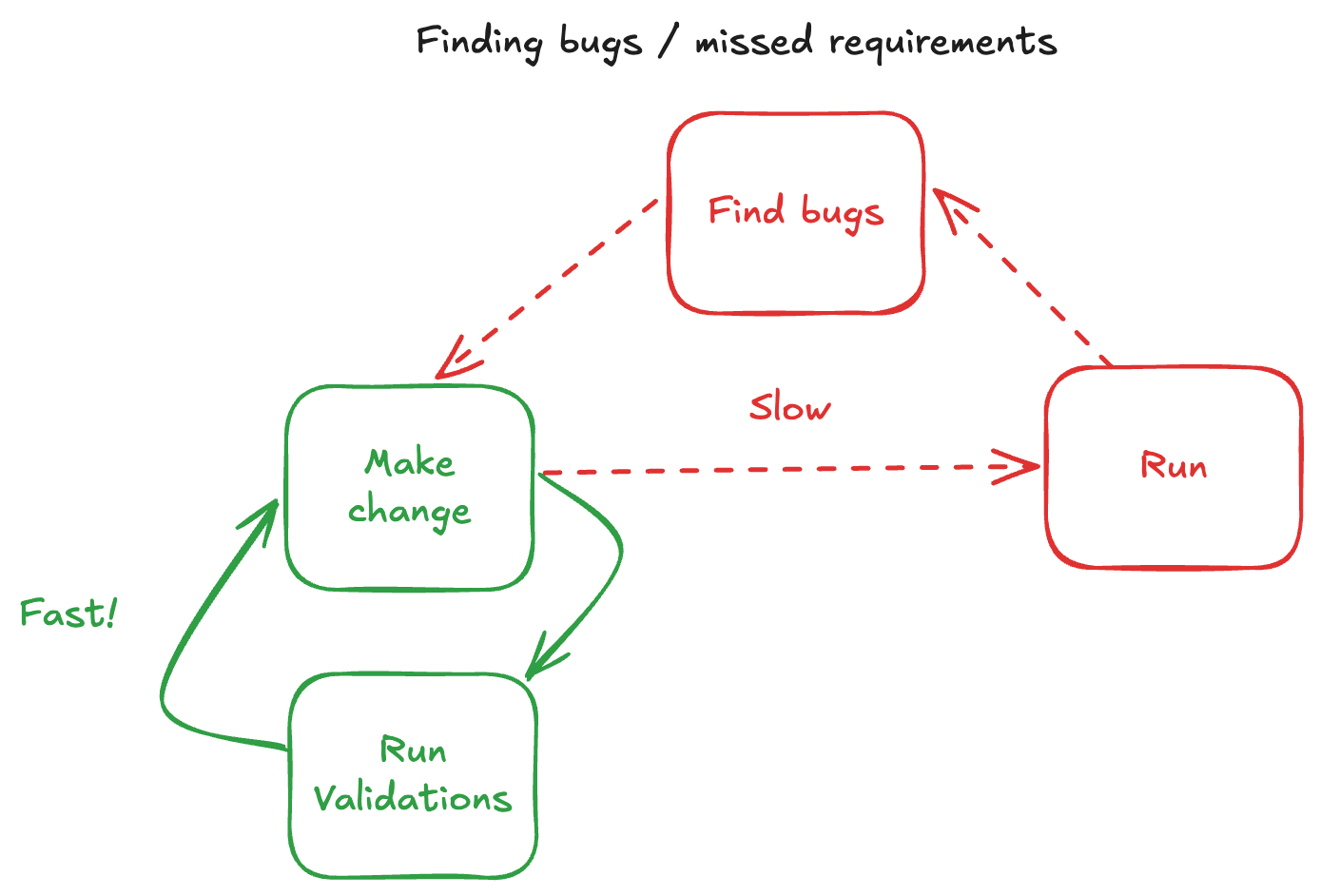A colleague recently complained to me about the hassle of organizing information in AGENTS.md / CLAUDE.md. This is the mark of a real adopter - she has gone through the progression from being impressed by coding agents to being annoyed at the next bottleneck.
When I'm thinking about optimizing repos for agents, I'm looking to accomplish three main goals1:
- Increase iterative speed: Avoid repeated context gathering, enable the agent to quickly self-correct its mistakes.
- Improve adherence to evergreen instructions: Over time, repeated agent mistakes emerge. Context within the repo helps the agent avoid these and adopt a more consistent workflow.
- Help the most agentic agents of them all: Humans and agents scan docs and code in very similar ways, so organizing information so it's easily understood by humans is a good rule of thumb for helping the agents anyways!
Strategies2
Increased static analysis
Pushing detection of quality issues to compile time creates a virtuous cycle where the agent can quickly spot and correct mistakes:

This implies strong, opinionated linters, and strong type checks for dynamically typed languages3.
The tradeoff here is cumbersome nitpicks for humans to deal with, but agents can quickly correct any mistakes that cannot be automatically fixed by the linter.
just for repeated agent commands
There's fragmentation in how to make commands available to agents - there's MCP, the newly released Claude Skills, or embedding information in CLAUDE.md / AGENTS.md.
A justfile is the most interoperable way to share commands between different agents and humans, and is a straightforward place to iterate.
One additional refinement is to make these commands economical in their output volume. For example, I take care to direct build logs to dedicated files - healthy build logs can eat up a lot of tokens if outputted directly to the agent.
Organize docs in docs/
Simon Willison recently wrote about this topic, and expressed that docs aren't so important. I agree that docs explaining the code aren't all that helpful, but I get a lot of mileage out of having docs like CODE_REVIEW.md, PRD.md, ROADMAP.md, and CAPTAINS_LOG.md. This helps the agent stay on track with the overall intent of the project, adhere to consistent review practices, and counter poor tendencies (the most obnoxious being an overwhelming tendency to fail open).
Putting these in a docs/ folder and referencing them in agent instructions helps reduce context bloat, and provides interoperability between humans and various agents.
Frameworks have begun to emerge that handle some of this for you. I've tried spec-kit and found it to be a little heavy-handed. In general I favor a more documentation-heavy approach when building with agents, but the need for different docs comes with iteration, and I think generating the full complement of docs is a bit overkill right off the bat.
No experts, no standards
These strategies work for me, but this field is too new for dogma. The most important strategy is to experiment and share what you learn.
.png)



